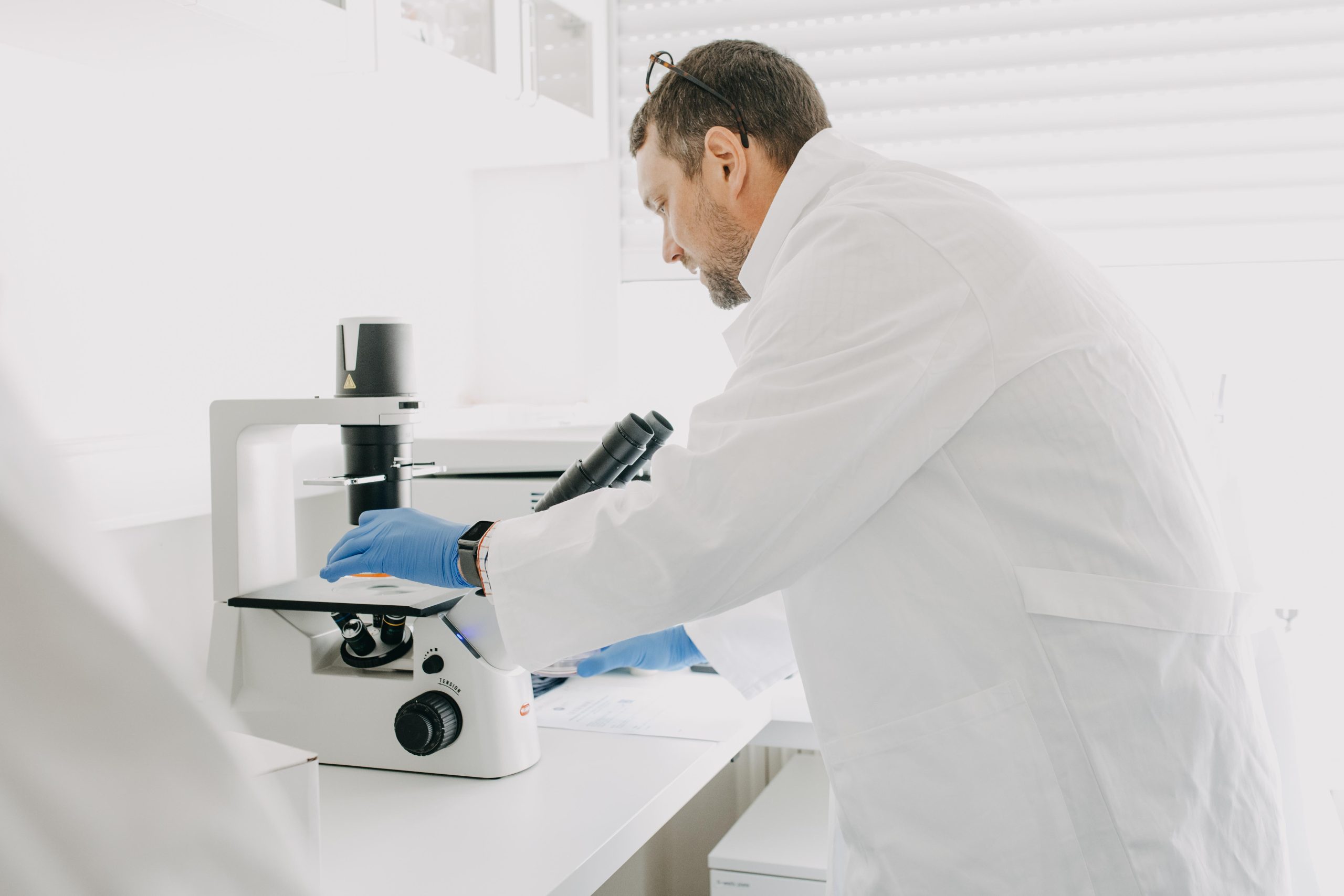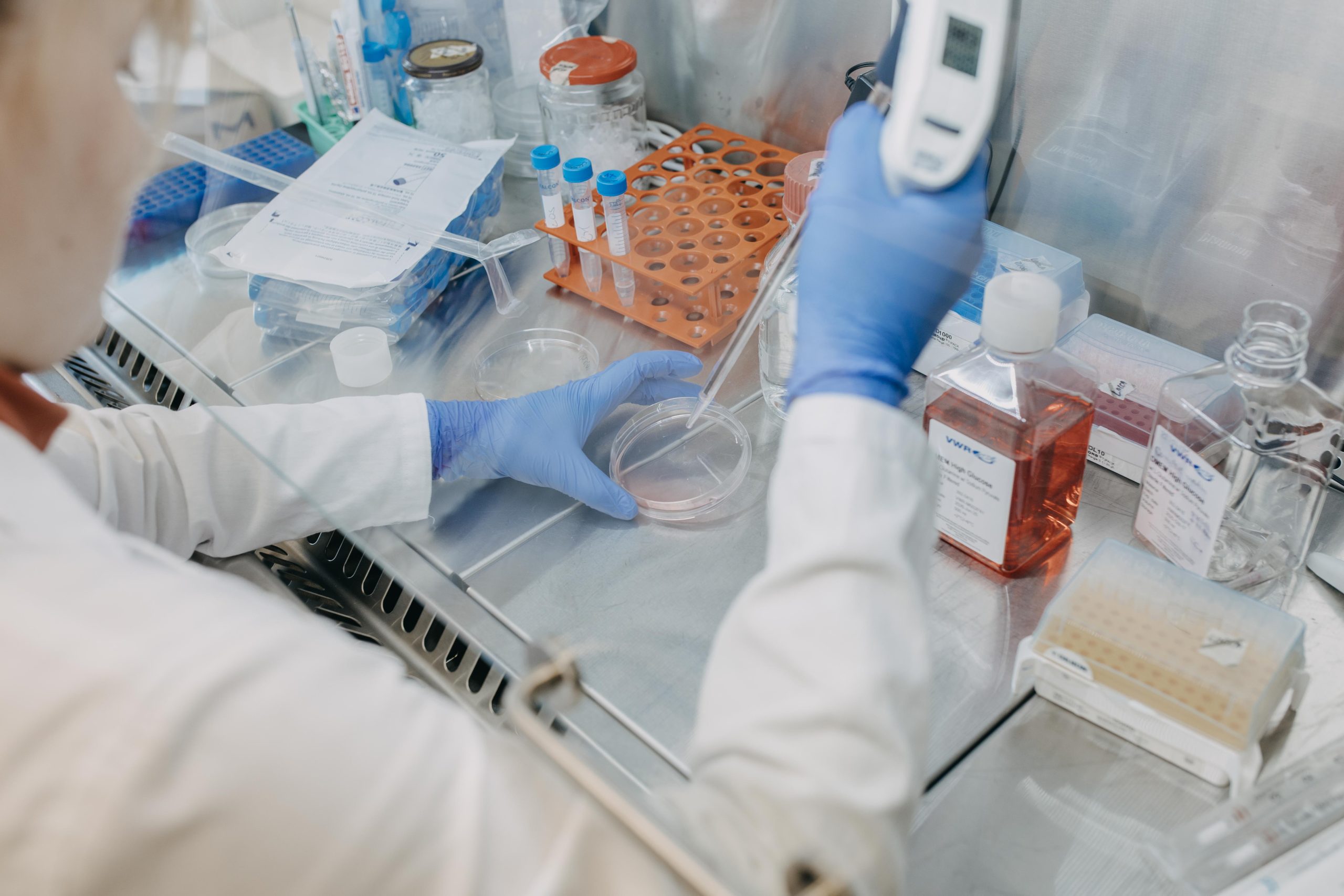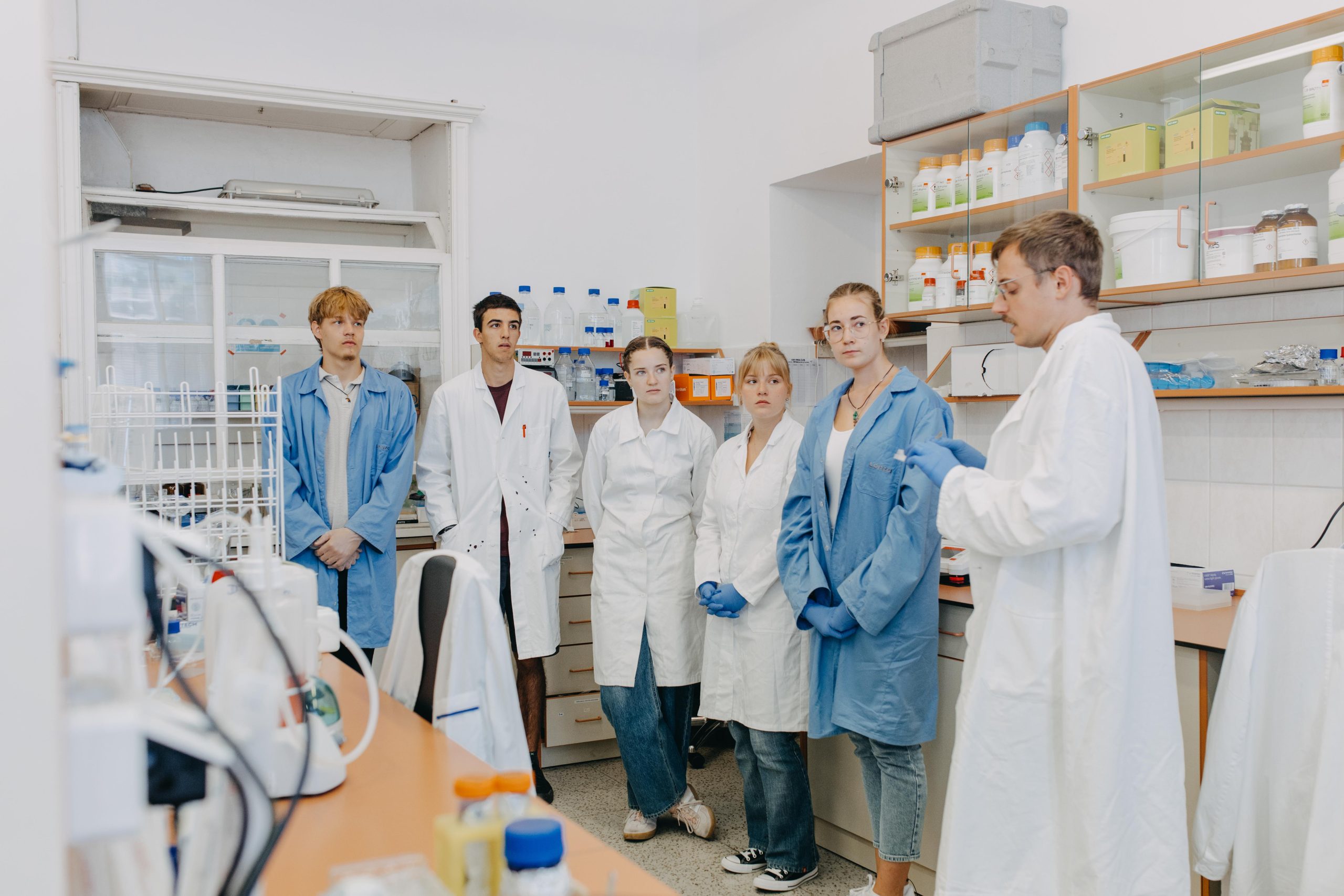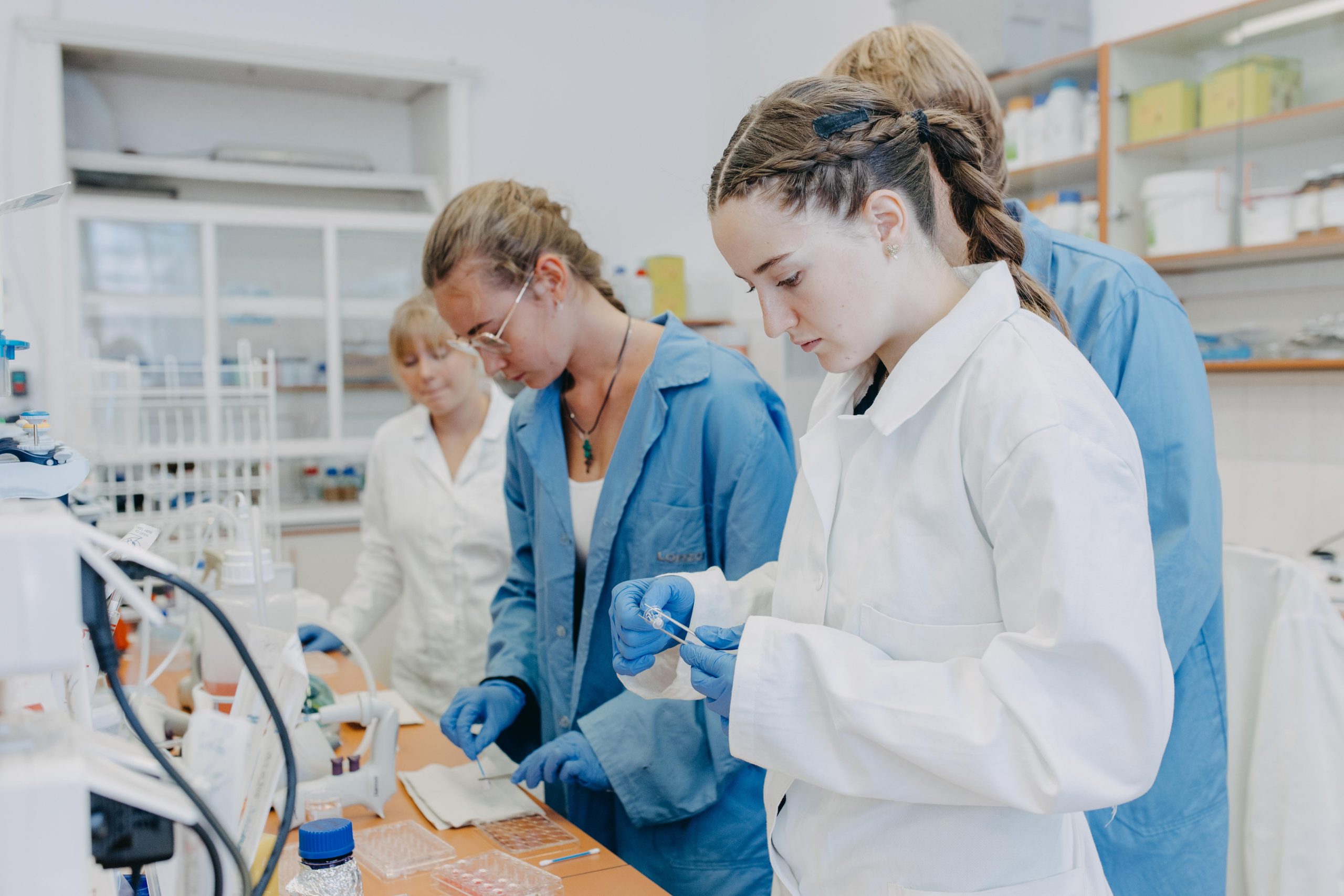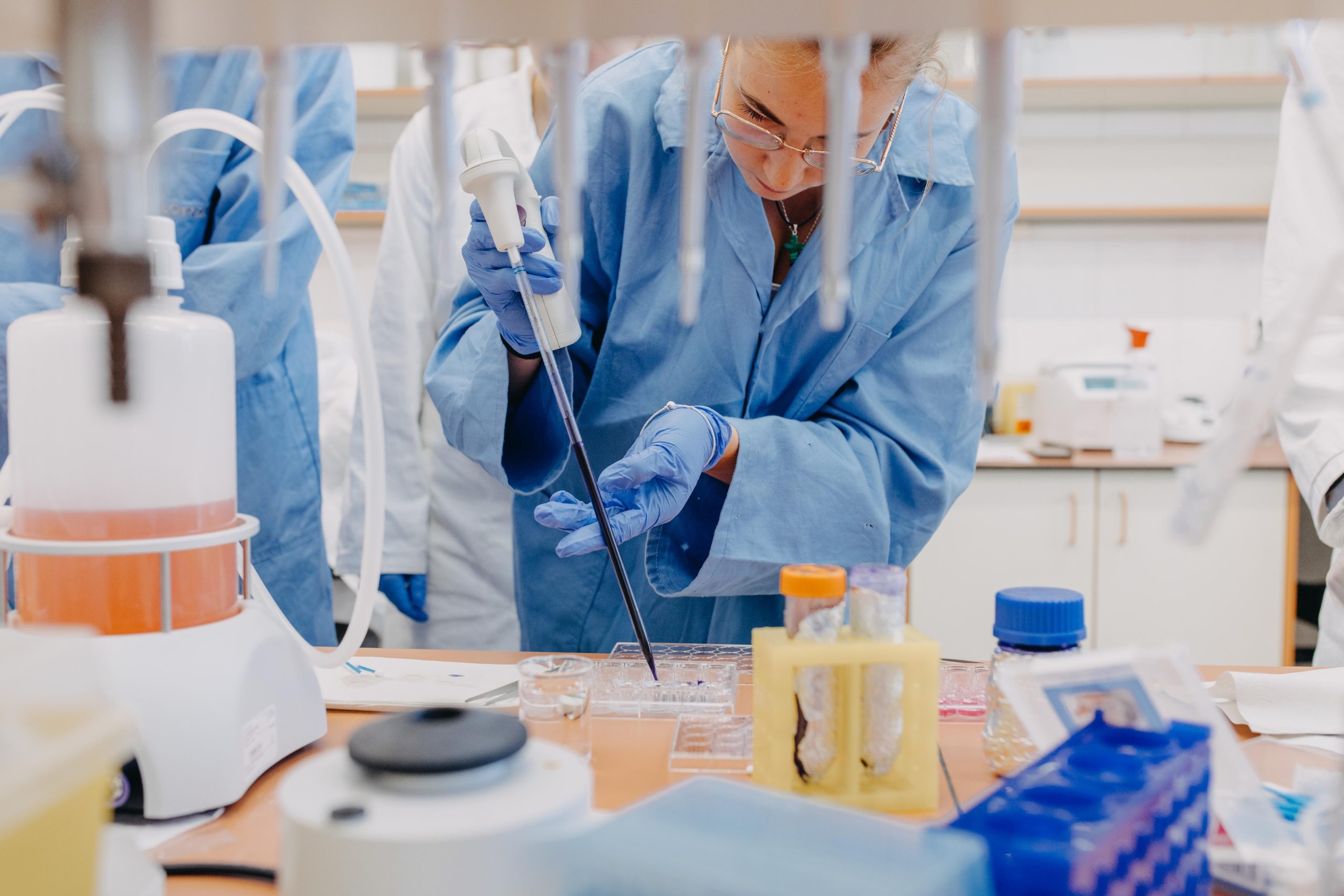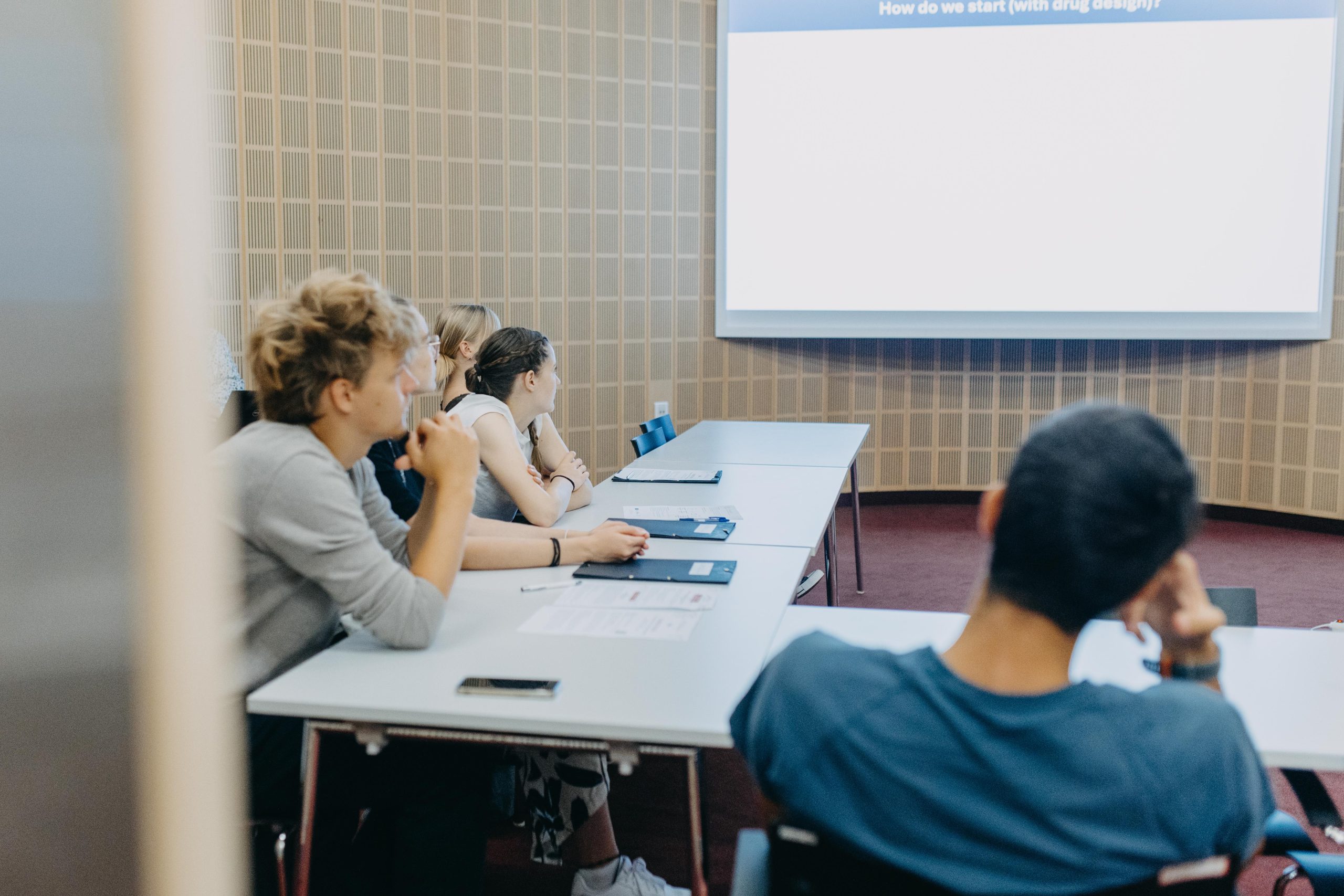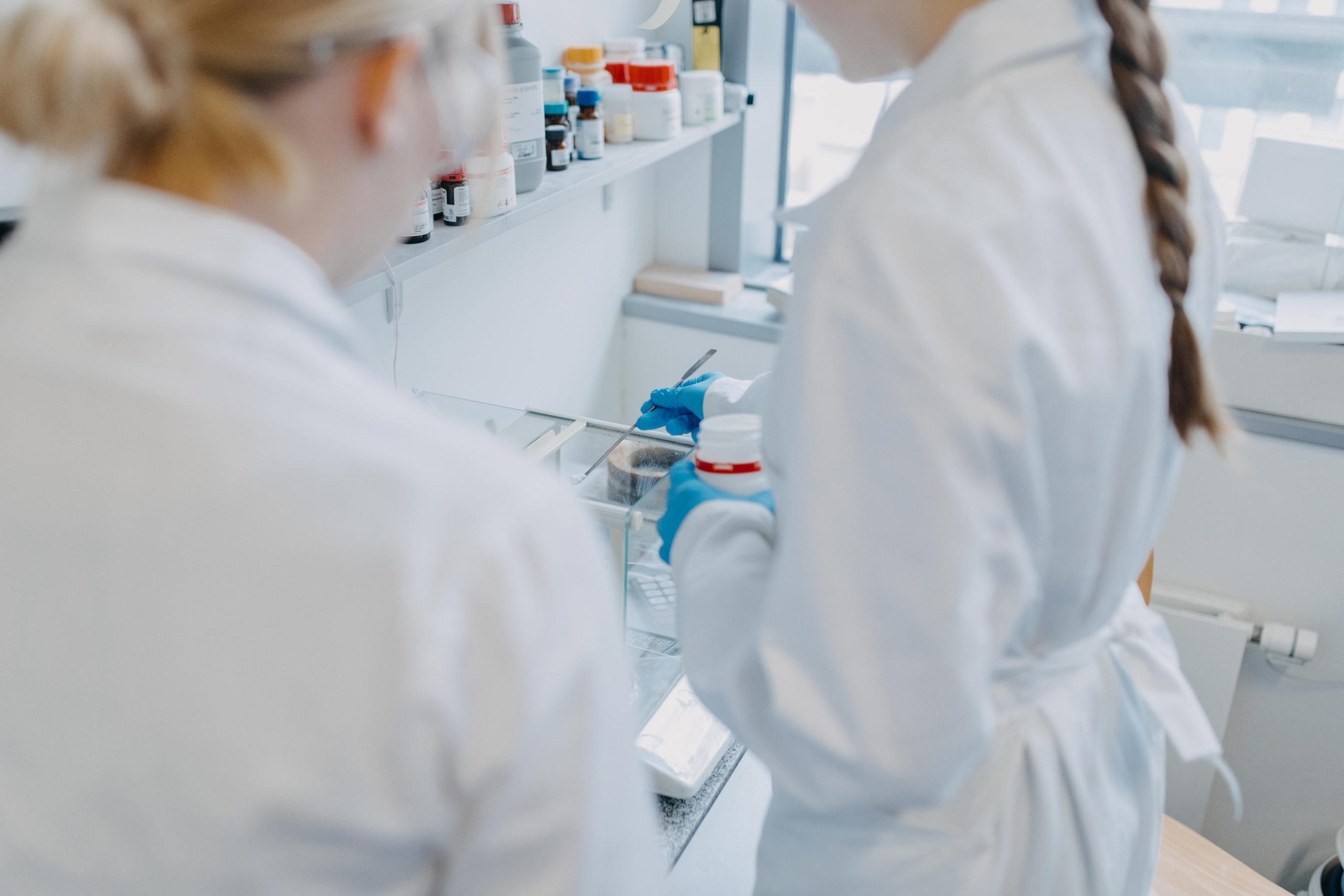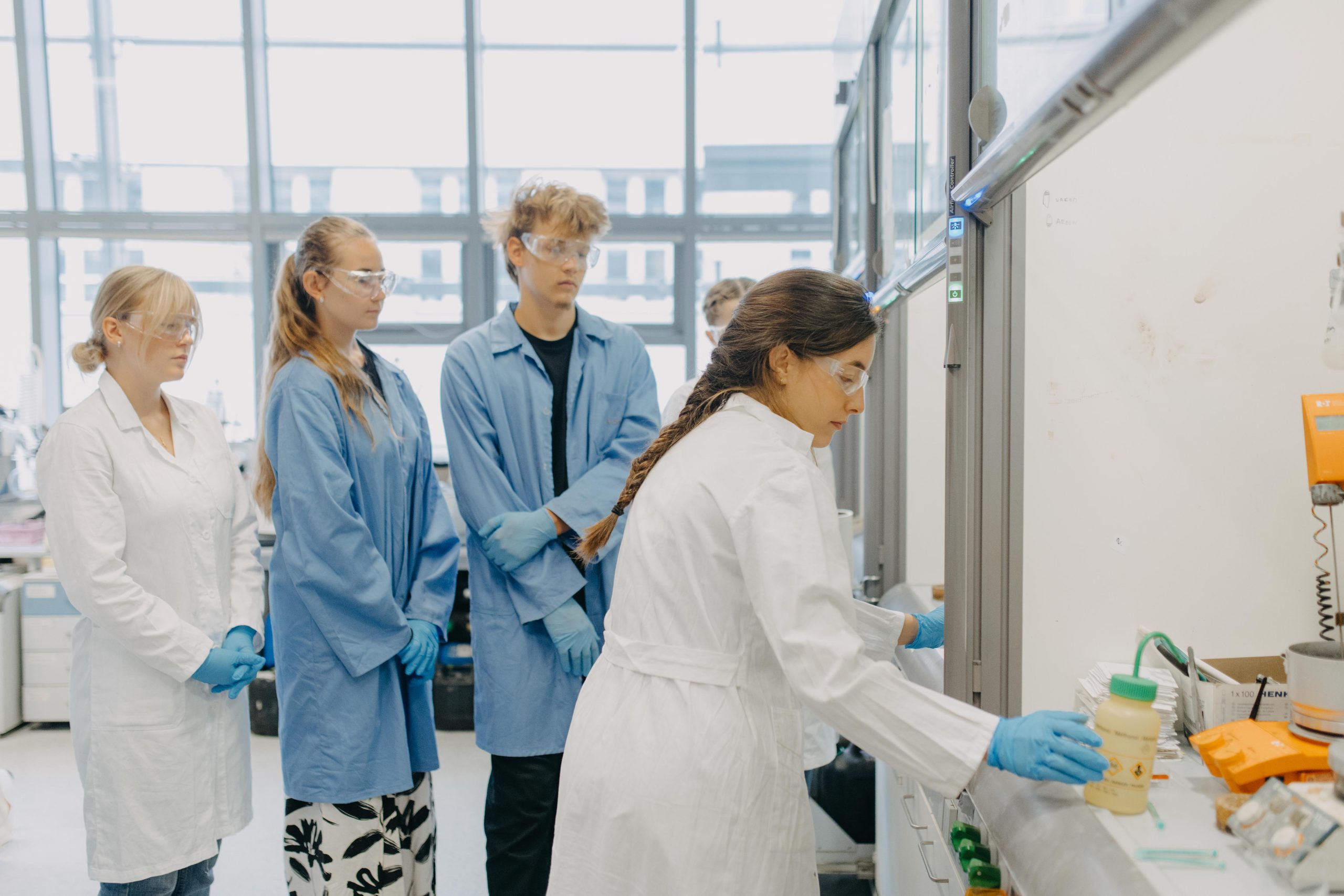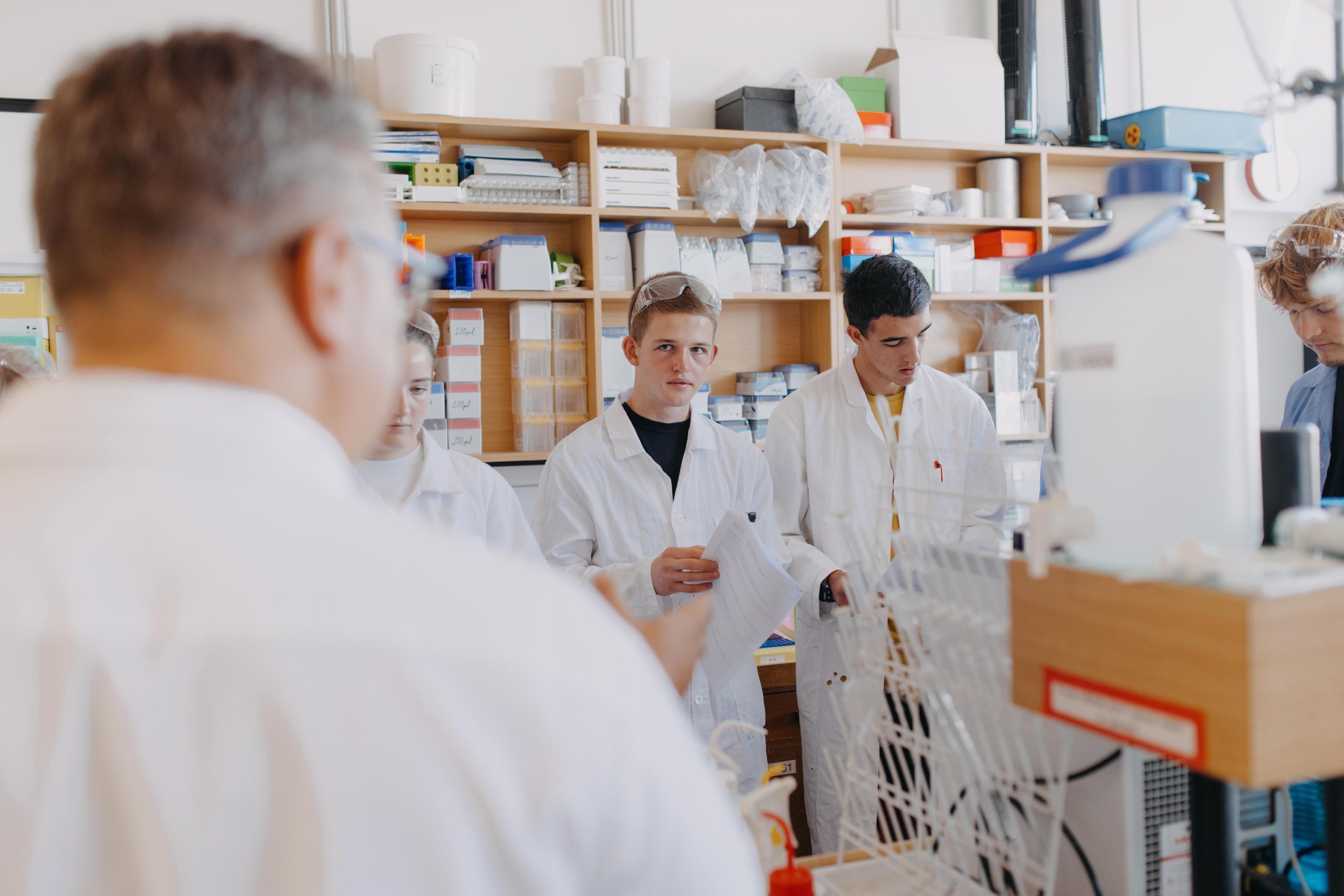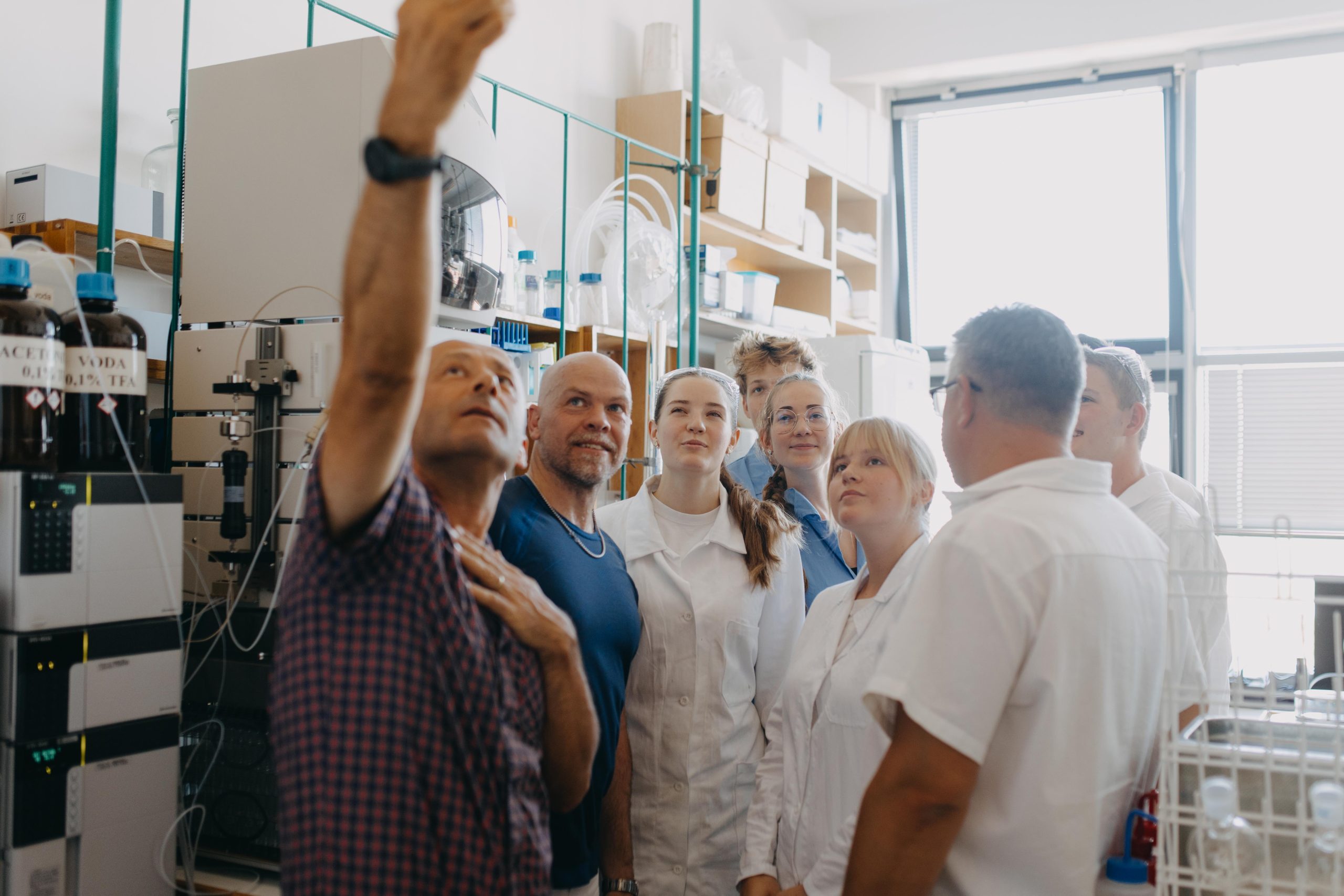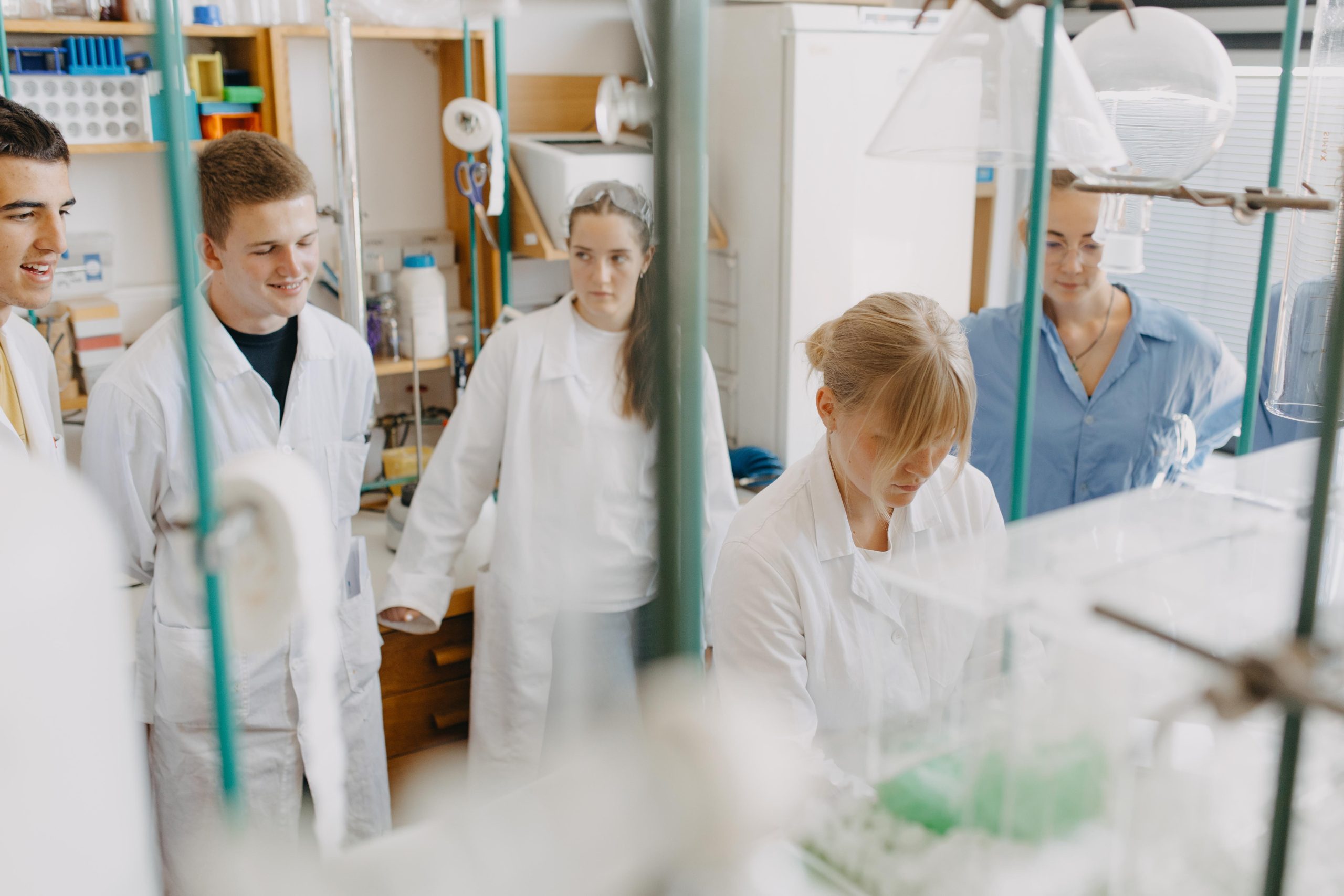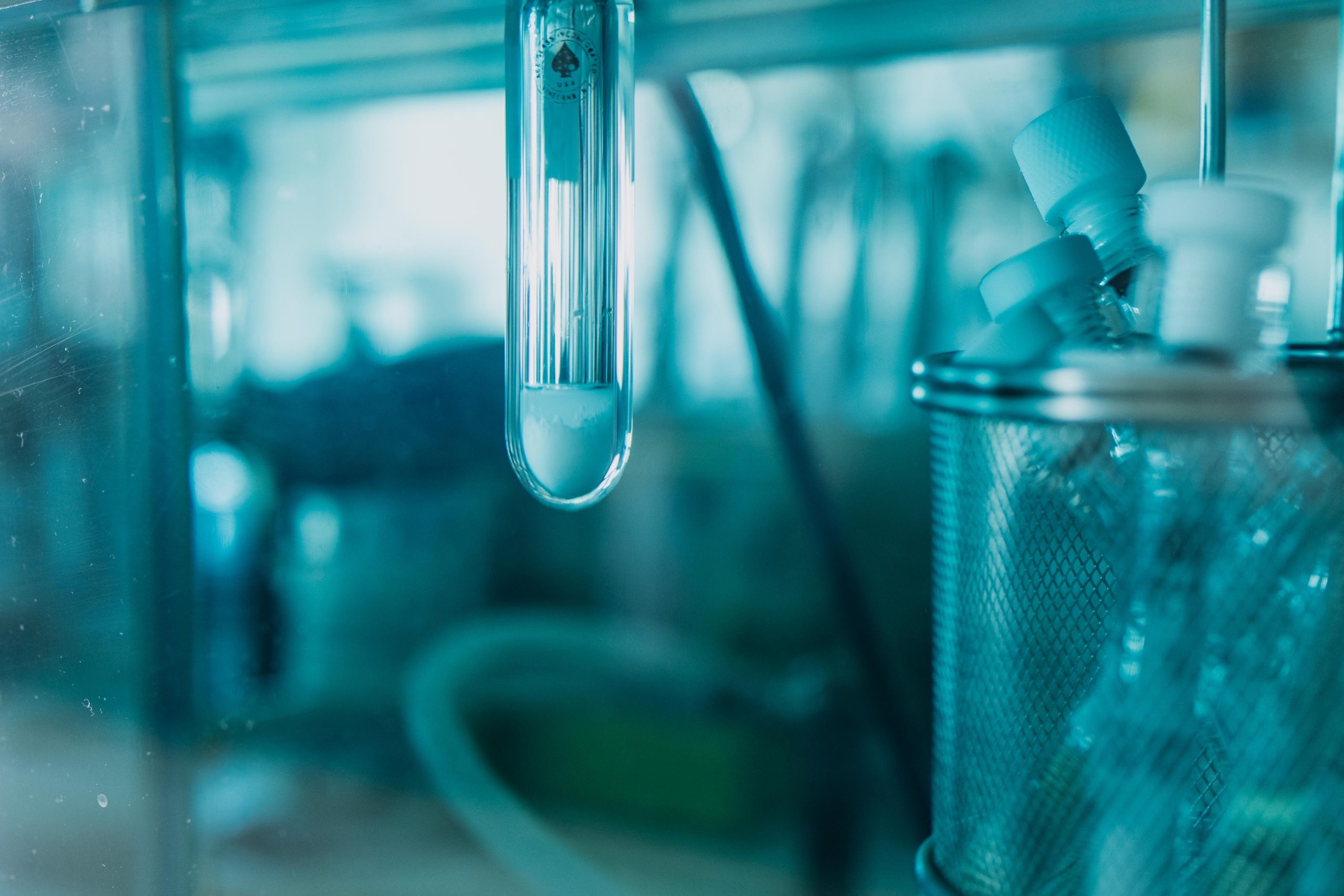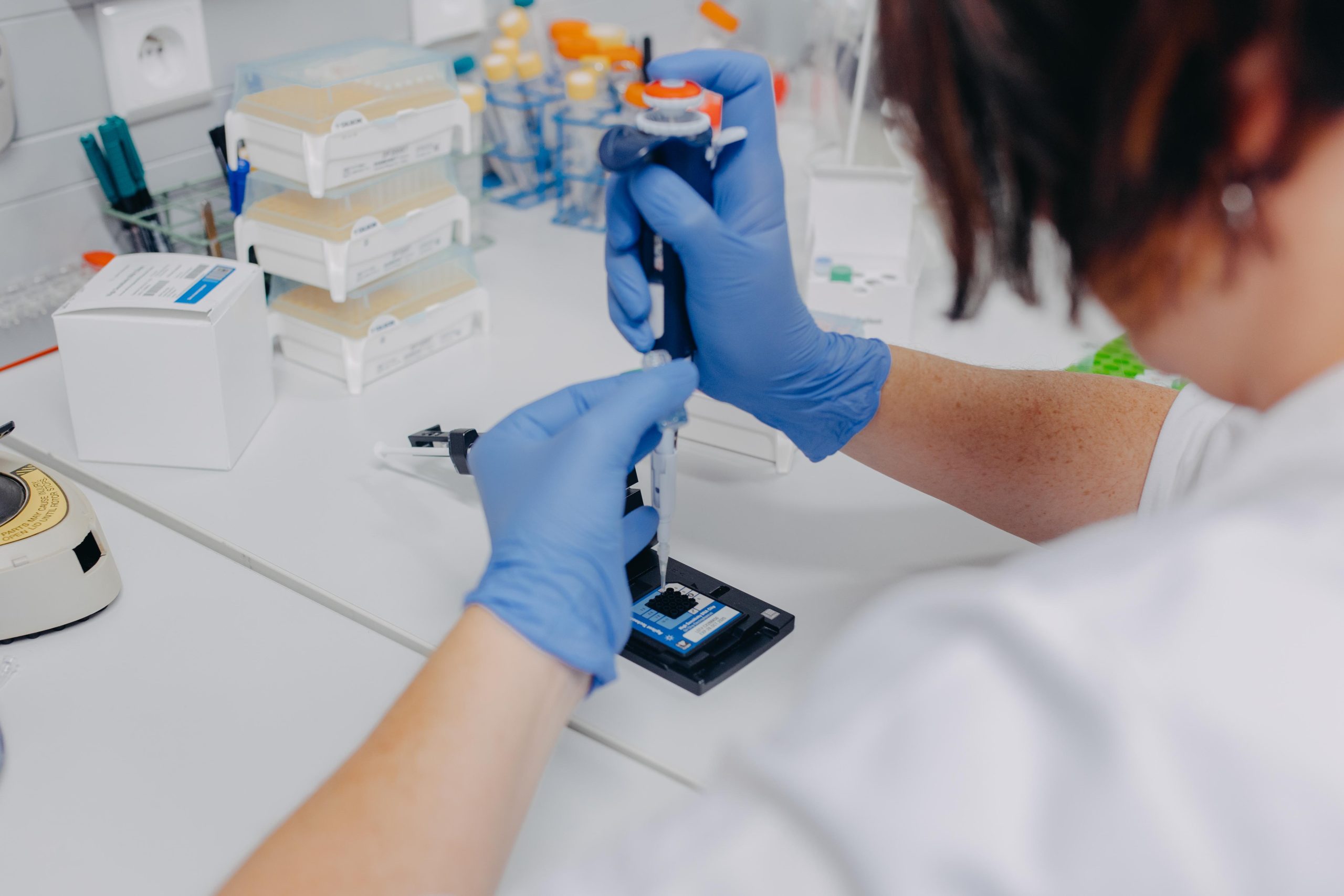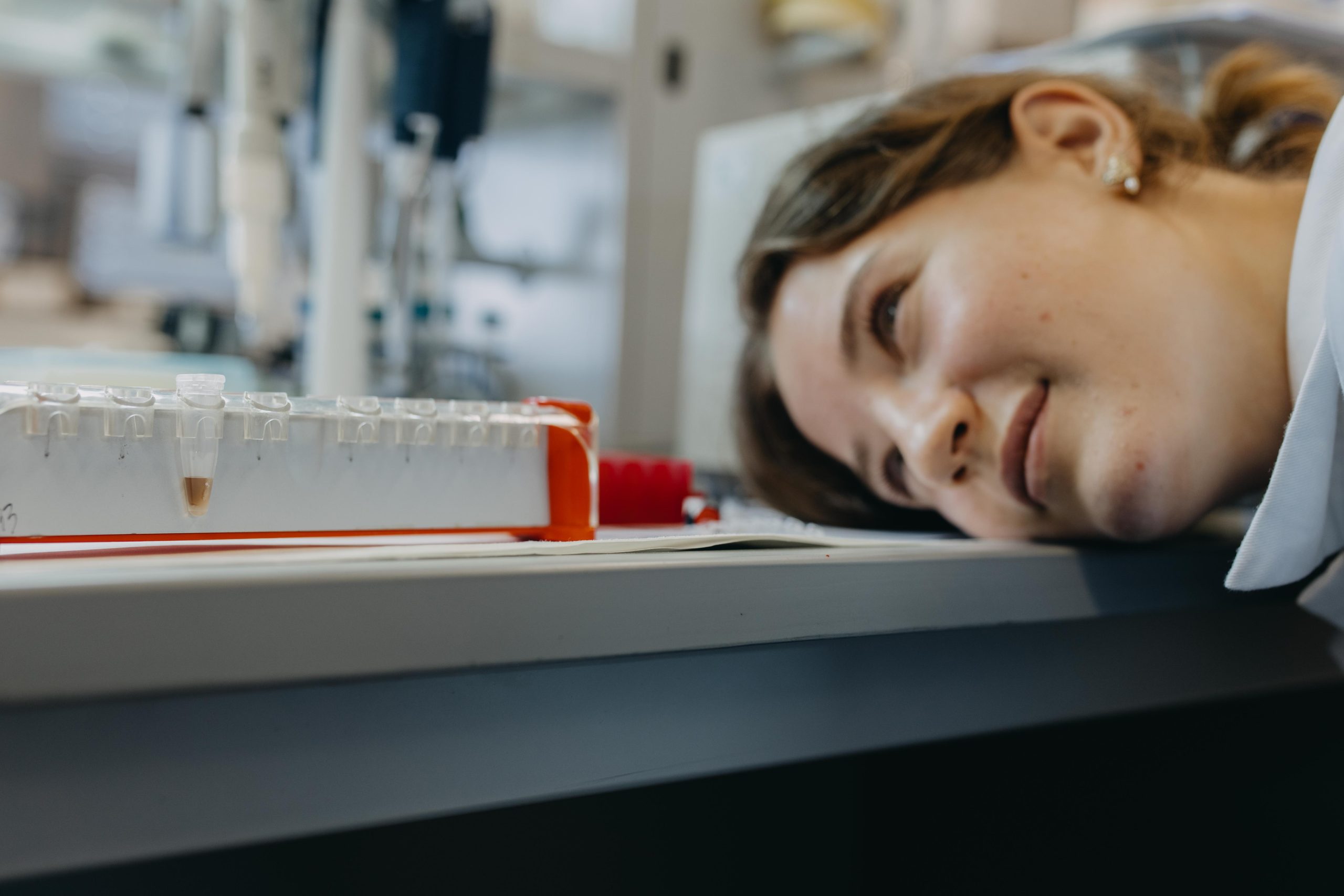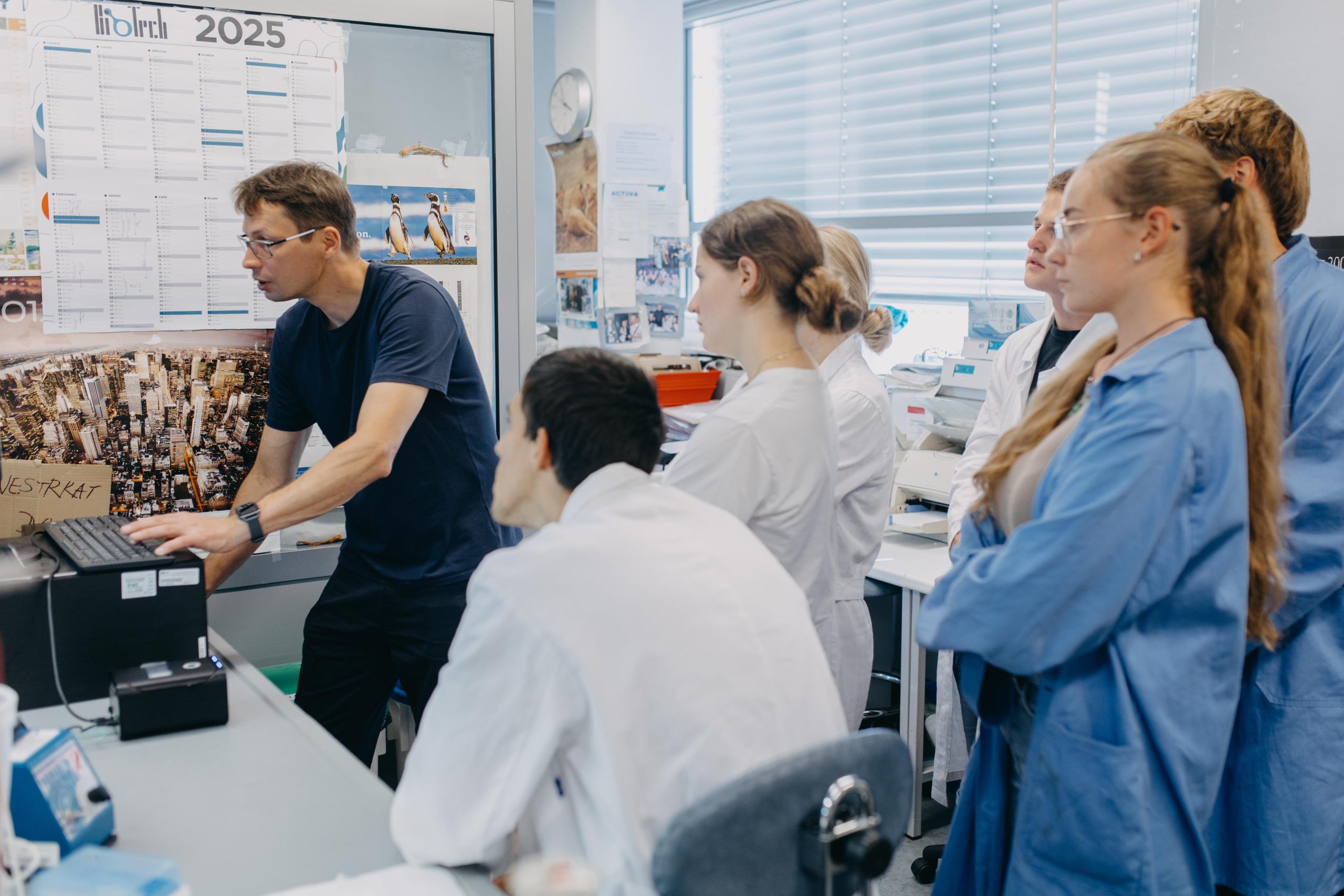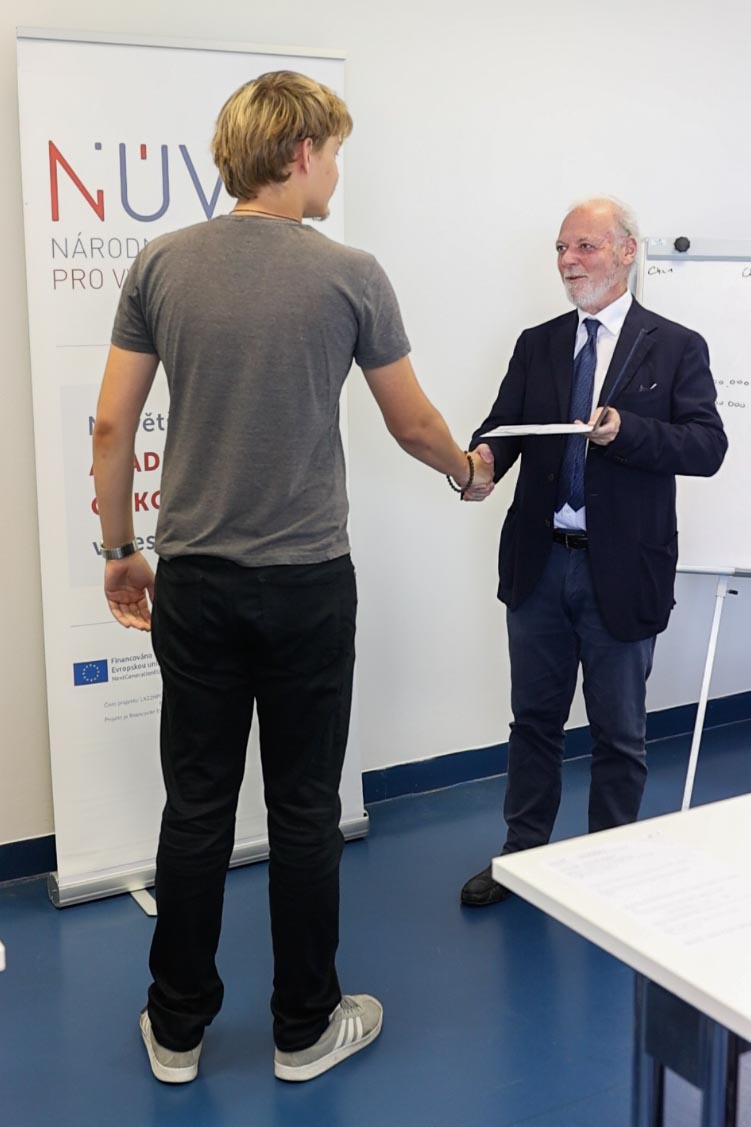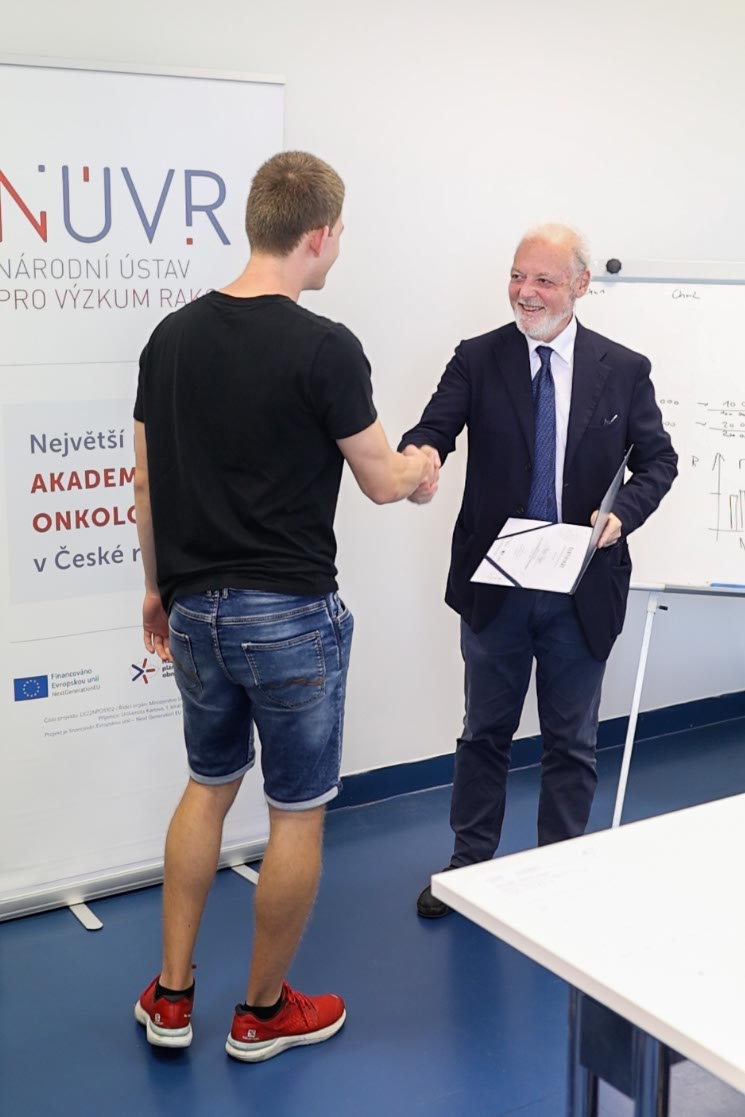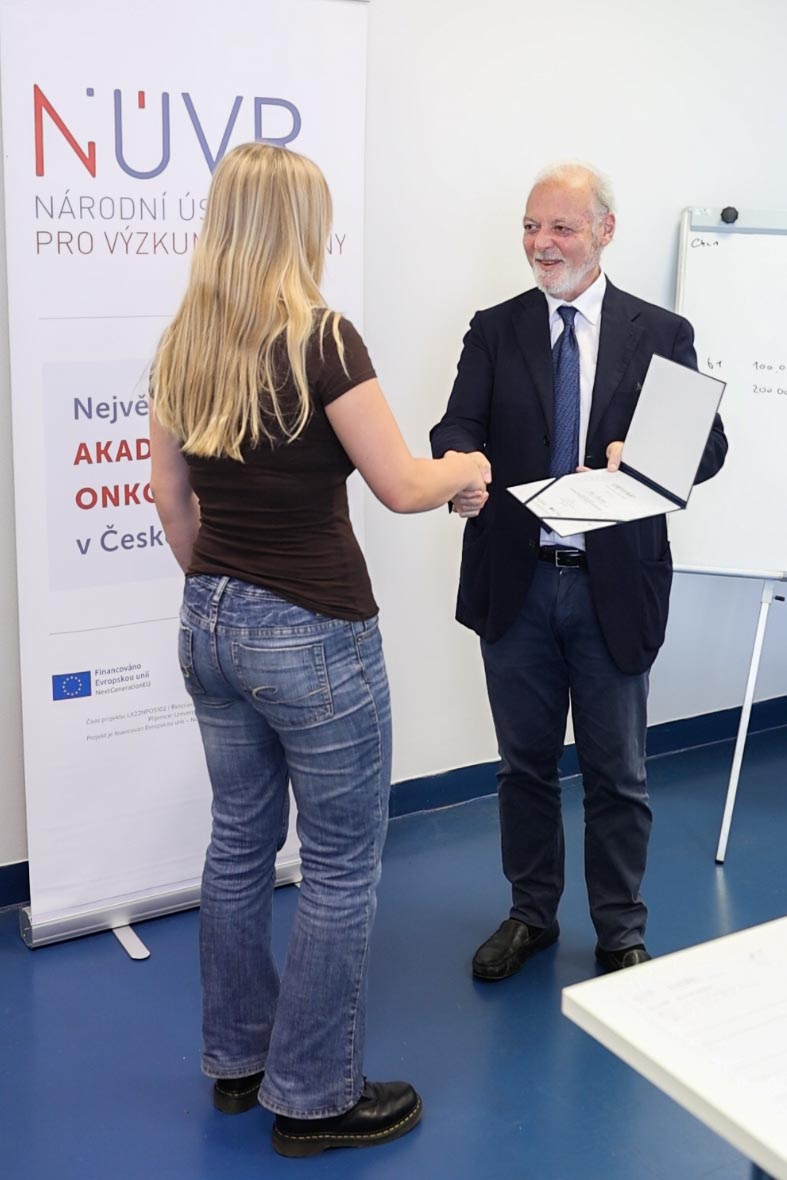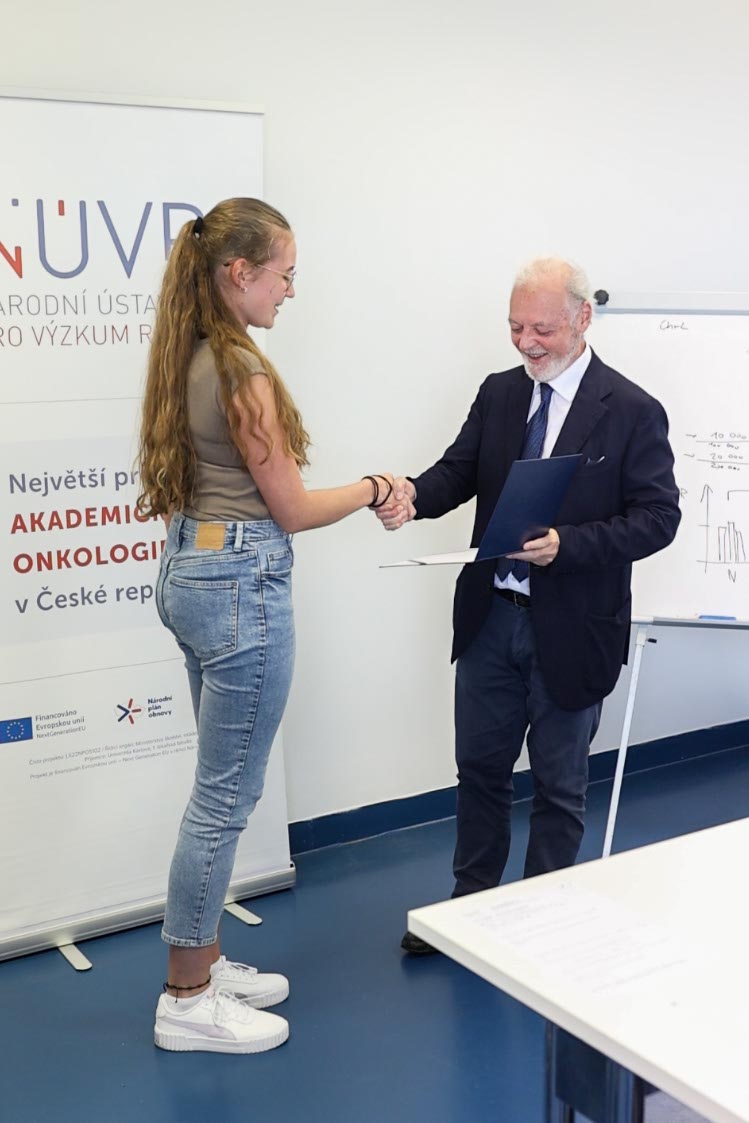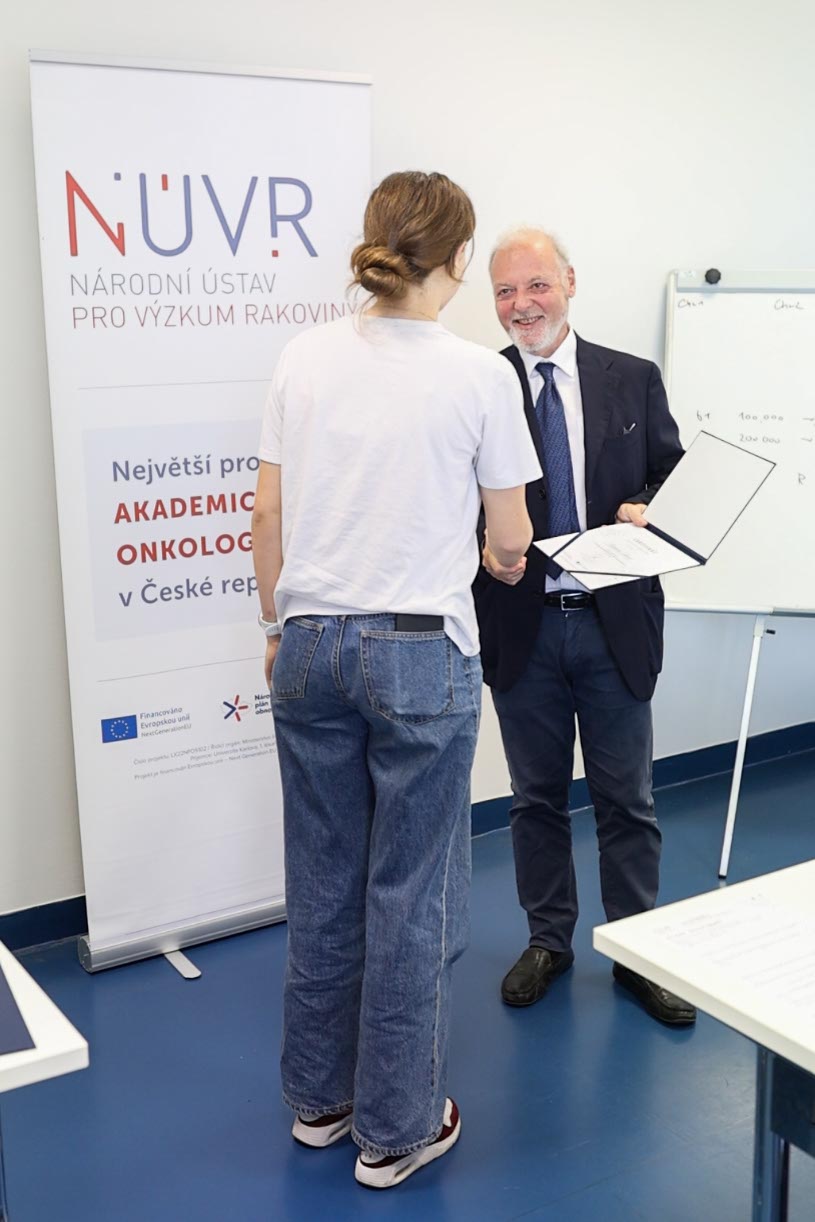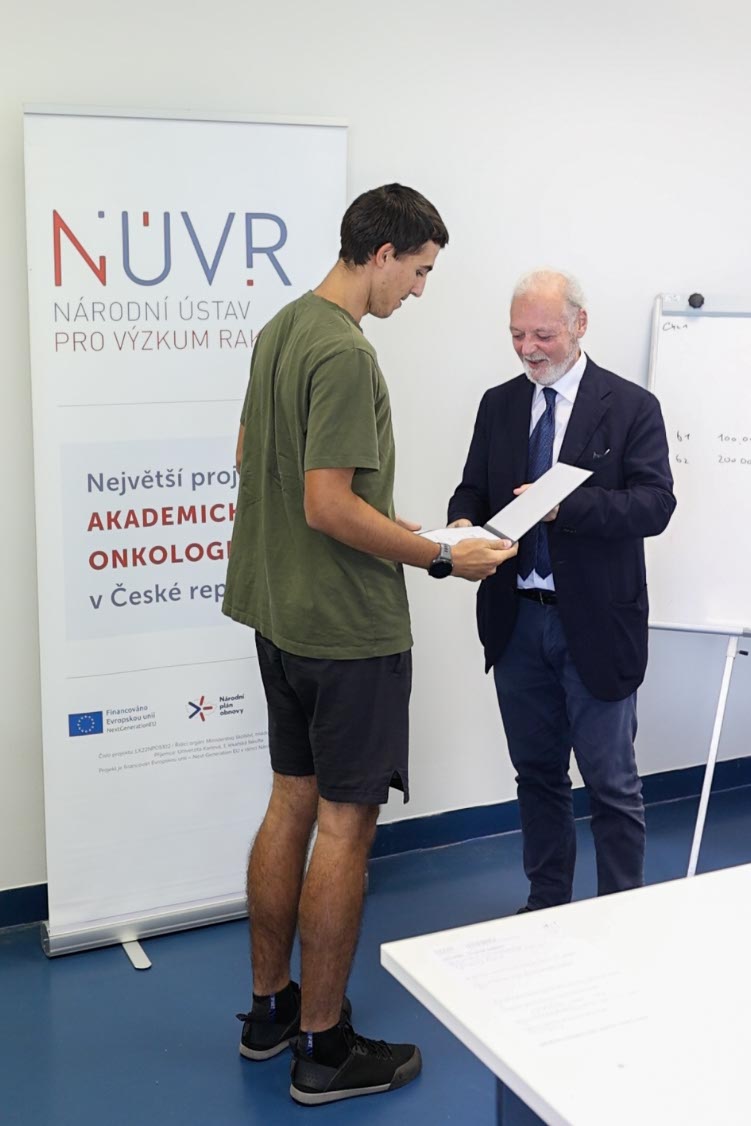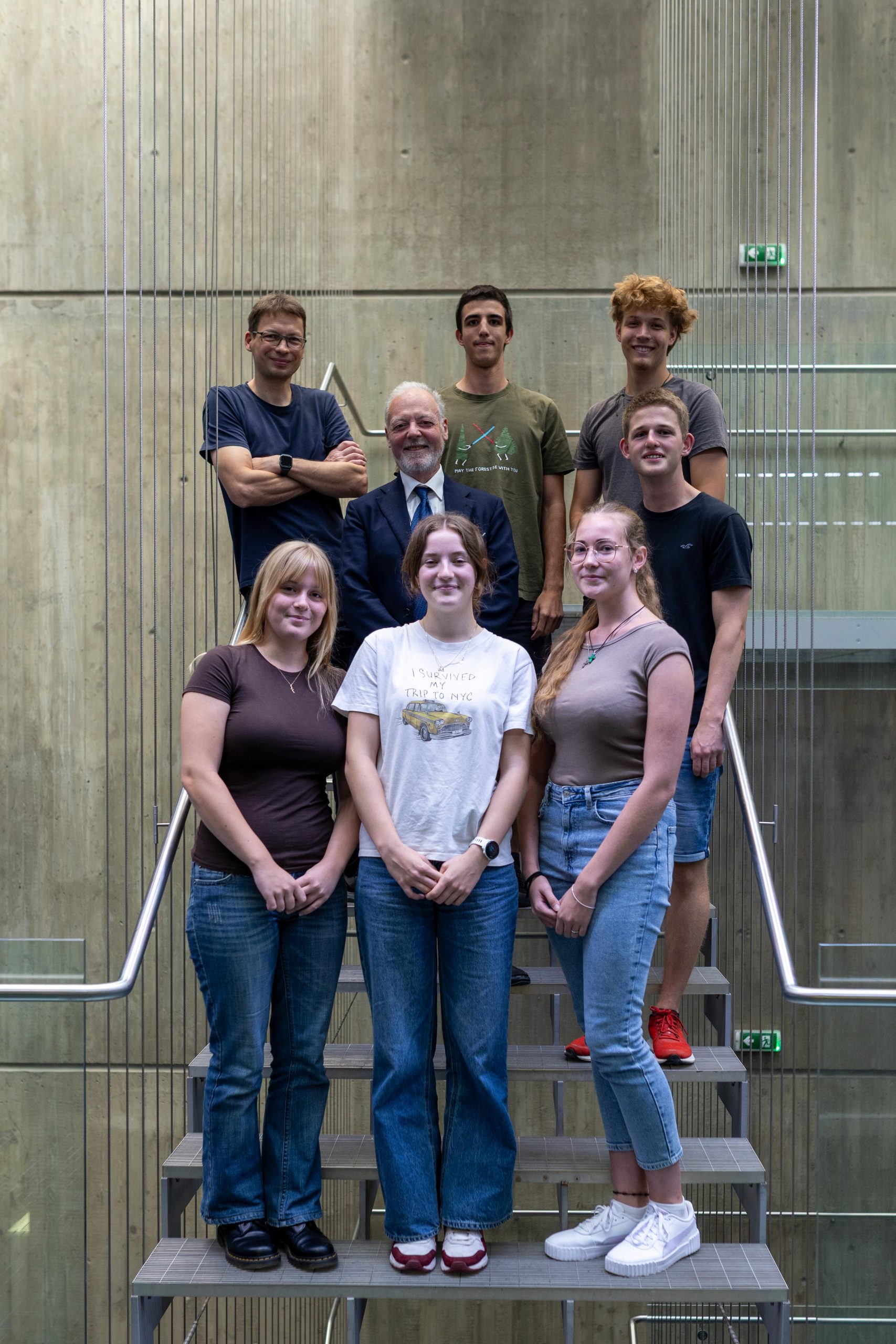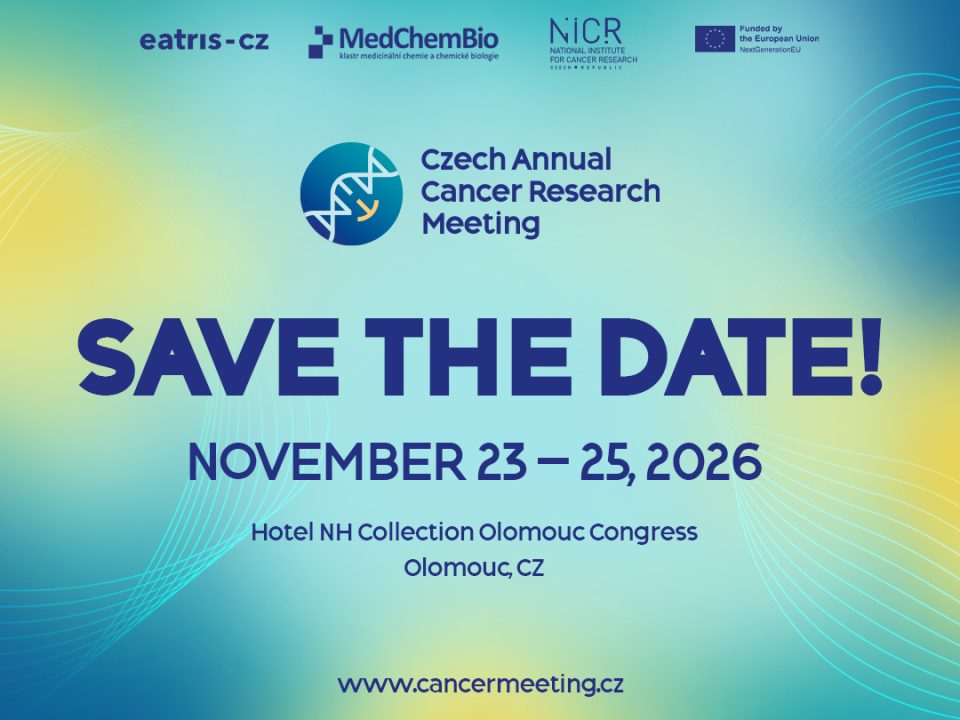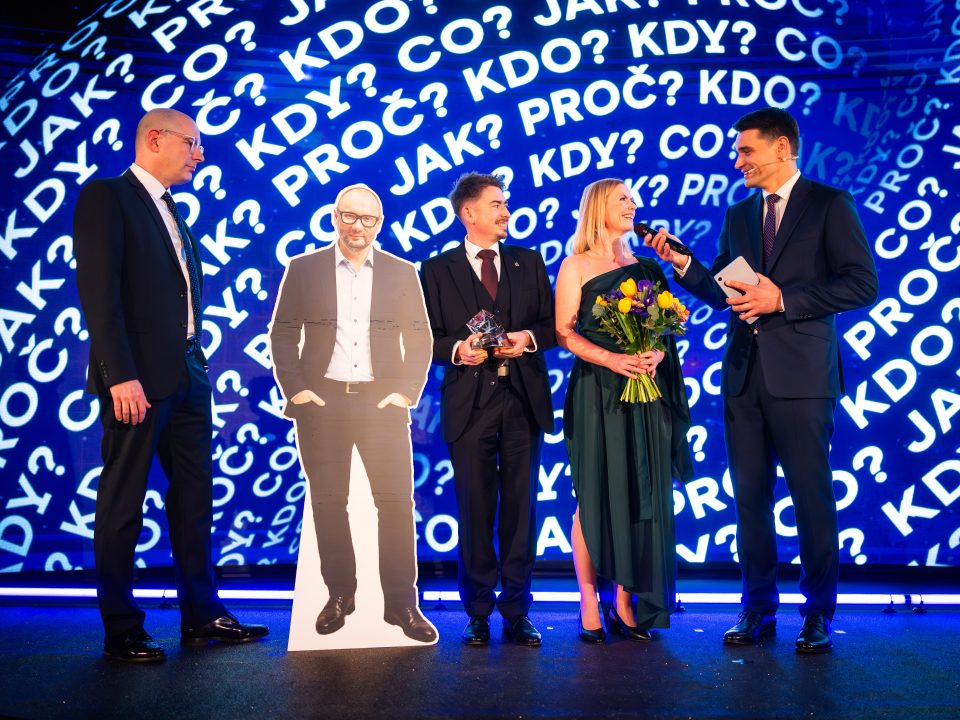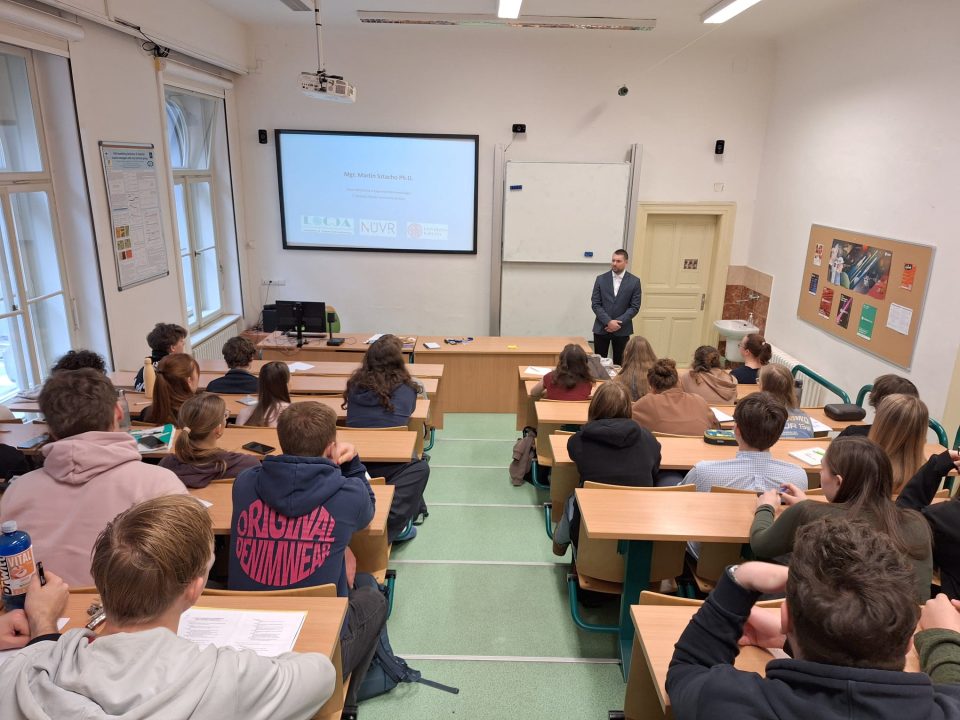Four leading research institutions, five days, and six motivated high school students who immersed themselves in the world of scientific discovery. For the very first time, the National Institute for Cancer Research (NICR) organized a Summer School for secondary school students, offering them a unique opportunity to experience first-hand what it means to work in research teams.
The Summer School was held in Prague from August 25 to 29, 2025, and included third-year students from selected grammar schools and vocational secondary schools, recommended by their teachers. The program was structured so that each participant could explore cancer research from multiple viewpoints – as a cell biologist, a scientist in medicinal chemistry, a polymer chemist, or a bioinformatician.
“The aim was to provide talented high school students with an authentic experience in state-of-the-art laboratories – from hypothesis through experiment to data interpretation – and to emphasize the key role of a multidisciplinary approach in biomedicine. We believe that some of them will return to science in the future, whether in medicine, chemistry, or bioinformatics,” said Aleksi Šedo, Director of NICR.
Cell migration, DNA sequencing, and drug development
The first two days took place in the laboratories of the Institute of Biochemistry and Experimental Oncology, First Faculty of Medicine, Charles University, under the supervision of Martin Sztacho and Petr Výmola. Students investigated how a hypoxic environment affects the invasiveness of glioblastoma and osteosarcoma cells. They worked with cell cultures and performed a transwell migration assay, including subsequent evaluation. “I liked that the mornings were in the lab and in the afternoons we analyzed the data and discussed how to interpret it,” said one participant.
On the third day, participants moved to the Institute of Organic Chemistry and Biochemistry of the Czech Academy of Sciences (IOCB Prague), where Michal Tichý and his team introduced them to work in medicinal chemistry and the development of new therapeutic agents. They synthesized acetylsalicylic acid themselves and then carried out the analysis of the product. “I saw the full potential of chemistry, and I was most surprised by how complex and how long the path is from an idea to a medicine that actually reaches patients,” reflected one student.
Thursday was devoted to polymer chemistry. In the labs of the Institute of Macromolecular Chemistry of the Czech Academy of Sciences, under Tomáš Etrych and his colleagues, the students prepared polymeric carriers for drug delivery and examined their physicochemical properties. “It was very hands-on. I felt like part of a team developing new biomaterials,” described one of the students.
The final day took place at the Institute of Molecular Genetics of the Czech Academy of Sciences, where Michal Kolář and his team led them in investigating genetic alterations in cancer cells – and exposed them to real scientific uncertainty! They isolated DNA, prepared a sequencing library, and performed a bioinformatics analysis of the resulting data. “I was convinced I would study medicine, but this week made me consider other natural science fields as well ☺,” said one of the participants.
Student feedback: inspiration and motivation
Feedback from students showed that the NICR Summer School achieved its goals – not only did it introduce them to the world of science, but it also deepened their interest in natural science fields. They especially valued direct contact with scientists, getting to work in real laboratory settings, and trying out various methods themselves. On a scale from 1 to 10, the workshops were most often rated 9 or 10. Most students said that after completing the program, they were even more interested in research careers than before.
At the closing ceremony, the students received certificates of completion. “I believe this experience will not only remain a pleasant memory, but also serve as the first step on your path to a scientific career,” said Luca Vannucci, who has long been involved in supporting the career development of young scientists.
Special thanks go to all partner institutions, the lecturers, and of course the students themselves, who invested enthusiasm and energy into the programme! We also must not forget their excellent teachers from Jiří Orten Grammar School in Kutná Hora, Christian Doppler Grammar School (Prague), Jan Patočka Grammar School, Nad Štolou Grammar School, and the Secondary School of Nursing in Beroun! ☺



